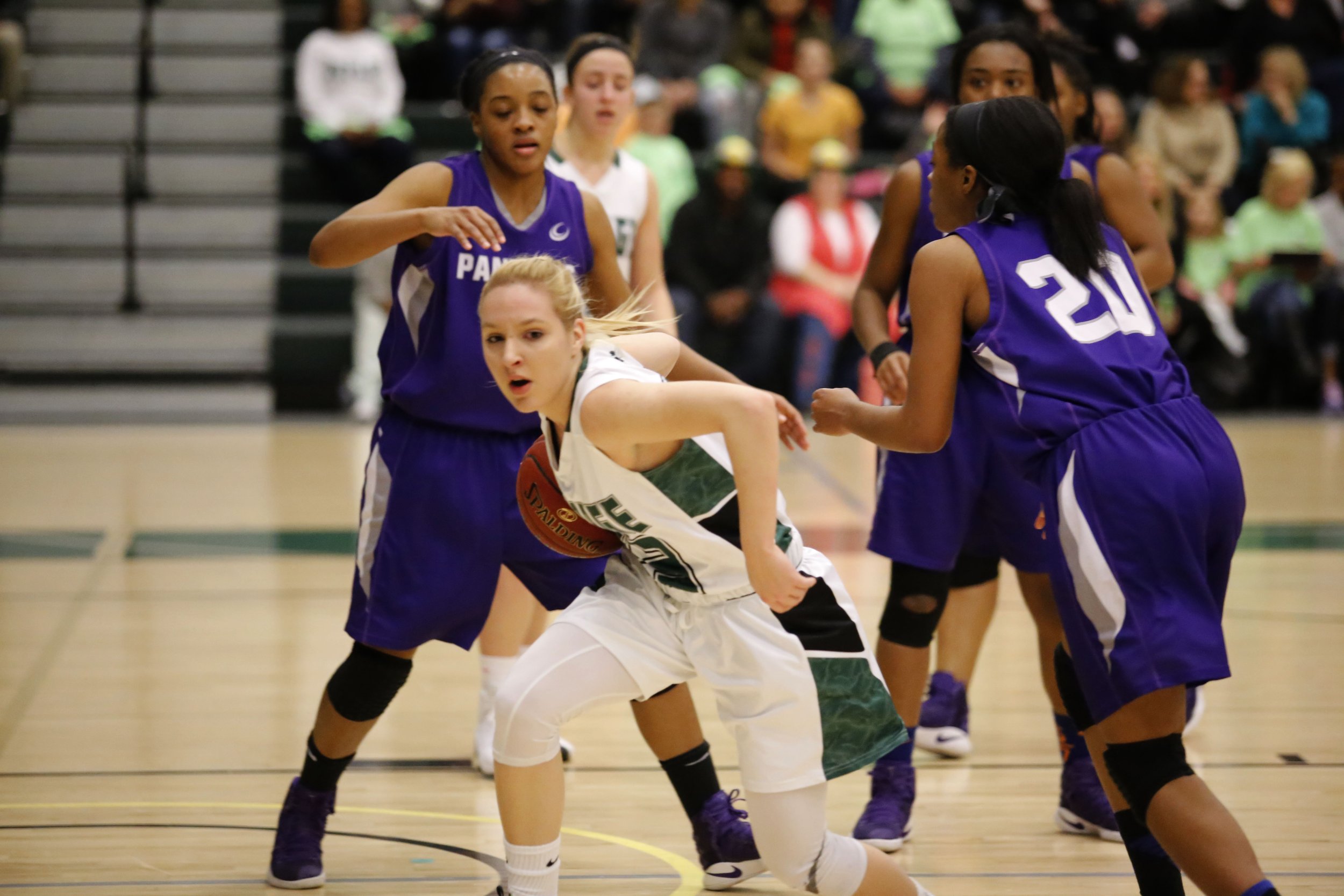The Complete Junior Year Recruiting Timeline for High School Student-Athletes
Getting prepared for recruiting as a Junior
There is no way around it that junior year is arguably the most important time in any recruits high school career. By junior year almost every recruit who will play in college is competing at the varsity level and college coaches will be keeping track of how athletes perform. With college applications around the corner, junior year is about getting and keeping the attention of college coaches so that when the fall begins they are 100 percent of certain they want you on their team.
Know the timeline for junior year so that you can not only get in the recruiting game, but win it so that when you finally do commit to a school, it is the best possible place for you to achieve your goals.
Junior Recruiting timeline for the Fall
August to November of Junior Year
Plan your academic progress – Check your high school course list against the NCAA’s core courses to make sure you are on track each year. You can even meet with a guidance counselor to plan things out.Let your coaches know about your interest in competing in college – They can support you with training, advice, networking, and talent evaluation to you can make future progress.
Create and update your athletic resume – Using a recruiting service, you can create a free profile. Use this to track all of the information a coach may want to know about you. Be sure to upload your freshman year transcripts!
Review the NCAA’s recruiting calendars – Make yourself aware of any important dates for your sport so that you can get a jump on your competition in the recruiting game.
Register with the NCAA – If you are considering D3 schools you should create a profile on the NCAA’s website, but for D1 and D2 options you will need to have an NCAA Certification Account on file. Coaches will later check for you in the system so be sure you know your login information so you can update all relevant information.
Create and update your athletic resume – Using a recruiting service, you can create a free profile. Use this to track all of the information a coach may want to know about you. Be sure to upload your latest transcripts, stats, and highlight film!
Get ready for the SAT – Whether you take the ACT or SAT you will likely need a score to not only establish eligibility but get the most of your financial aid options. Prepare for whichever exam you take and know that no matter what happens you can always retake it to improve your score!
Follow college coaches on social media – This is a great way to let coaches know you are interested beyond a questionnaire, and learn things about the program you can talk about as your conversations with them grow.
Create a “Live” target list – Keep track of which college coaches are reaching out to you directly, this is your true list of schools that are recruiting you.
Junior Recruiting timeline for the Winter
December to February of Junior Year
Learn how college coaches recruit – College coaches have a rhyme or reason to everything they do in recruiting. But if you know how they operate, you can play the recruiting game to your advantage. Study up on exactly how college coach’s recruit athletes so you can make you’re your recruiting efforts count! I want to know how college coach’s think!
Take the ACT or SAT – It is best to register for your exam in the winter, even if you end up taking it in the spring. By taking it sooner rather than later you can have an official score to send coaches, and have time to retake it if necessary.
Email college coaches – In addition to filling out questionnaires, this is the best way to initiate contact with coaches. A proper e-mail will give them all the information they need to do a proper evaluation. And the coaches who are interested will begin getting back to you so you will know that they are seriously interested.
Keep track of your academic progress – the NCAA will require you to have completed 10 core courses by the end of junior year for your eligibility. Be sure that you are on pace, and make any necessary changes to your second semester schedule.
Review the NCAA’s recruiting calendars – Make yourself aware of any important dates for your sport so that you can get a jump on your competition in the recruiting game.
Junior Recruiting timeline for the Spring
March to May of Junior Year
Continue to initiate contact with college coaches – Recruiting contact should be in full swing by this point, but coaches will still be adding new recruits to their target list. Continue emailing and filling out questionnaires to verify you don’t miss out on any opportunities. Learn exactly how to engage with coaches and give them every reason to offer you.
Review your academic progress – Check your high school course list against the NCAA’s core courses to make sure you are on track each year. You can even meet with a guidance counselor to plan things out for your Senior year.
Take your ACT or SAT – If you haven’t already, you should definitely be taking your exams so that you have real scores heading into the summer. Be sure to submit them to the NCAA as well!
Plan to visit colleges – Get serious about which schools you are really considering and try to make plans to visit them in the coming months. If you are having consistent conversations with a coach, you should consider taking an unofficial visit. You can also take virtual campus tours on YouTube for most schools to at least get a feel for what it might be like.
Plan to attend camps, tournaments, and showcases – Look for any opportunity to develop your talent, and showcase it to college coaches. Space can fill up fast at things like camps, but know the difference between ones that are about training and development and others that are to get you in front of college coaches.
Edit highlight film – In most sports highlight film is crucial. Edit film from your most recent varsity or travel seasons in order to upload on your recruiting profile and send to coaches.
Share your summer competition schedule – If you are on a club or traveling team, make sure the schedule is linked in your recruiting profile. This will allow coaches who are seriously interested to know where they can see you in person.
Continue updating your athletic resume – A lot can change in a small amount of time. So constantly update your online recruiting profile with relevant information, so that whenever you start conversations with a coach, they have all the information they need like your latest transcripts, season stats, or updated highlight film.
Get prepared to apply to college – With applications months away, check out my guide to apply to college. Although recruiting will dominate most of your time, applications move fast and furious so preparing early will make all the difference.
Coach Rob’s Note: The best way to know which schools you should apply to and how much financial aid you should expect to get is with the SCA Academic Scope! Create a free account to know exactly which types of students colleges are typically accepting so you can prioritize colleges that will not only accept you but give you what you need in order to attend.
Review the NCAA’s recruiting calendars – Make yourself aware of any important dates for your sport so that you can get a jump on your competition in the recruiting game.
Junior Recruiting timeline for the Summer
June to August after Junior Year
Plan to manage your recruitment – Getting recruited will require you to put in time to initiate contact with college coaches. Set aside time in your summer schedule to research college teams and contact coaches directly.
Keep contacting college coaches – By now you should have a Live list, but if you are still interested in a school you have not contacted, it is still worth it to reach out. Entering senior year coaches will still consider new recruits so email directly or fill out a questionnaire to get your name out there!
Coach Rob’s Note: Don’t go under-recruited! I put in the hard work for you to know exactly which colleges already want to recruit you, which ones will view you as a top recruit, and how to get their attention. Book a meeting with me, Coach Rob, and see how easy it can be to get the offers you deserve!
Continue updating your athletic resume – A lot can change in a small amount of time. So constantly update your online recruiting profile with relevant information, so that whenever you start conversations with a coach, they have all the information they need like your latest transcripts or updated highlight film.
Attend camps, tournaments, and showcases – Junior year is a huge year for recruiting so take every opportunity to develop your talent and compete so you are ready to impress coaches in the upcoming year.
Prepare for your college essay – The application process is on the horizon but you can begin work drafting college essay. Starting this in the summer, primarily through the common app will make applying a whole lot easier in the fall.
Keep in contact with coaches – By now your conversations with coaches should be very serious with discussions of visits, potential offers, and more. Maintain contact so that they know you are interested because every conversation you miss is one they will have with another recruit.
Discuss financial aid with your family – Talk with your family about how much money you will need to get for college. Each college will approach financial aid differently, and if coaches are not offering you a full-ride for athletics, which is extremely hard to get, you will need to find a school that will not only offer you a roster spot, but be affordable.
Coach Rob is a recruiting expert and the Founder of SCA Recruiting. He is also the author of the book Winning the Ship: How to Win the College Athlete Recruitment Game. Available now on Amazon.

“93% OF HS ATHLETES DON’T PLAY IN COLLEGE… BUT I WILL HELP YOU BEAT THOSE ODDS. I GUARANTEE IT.”


